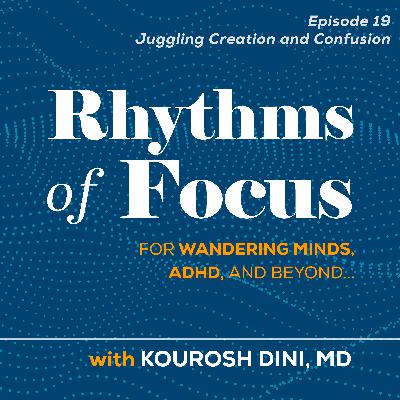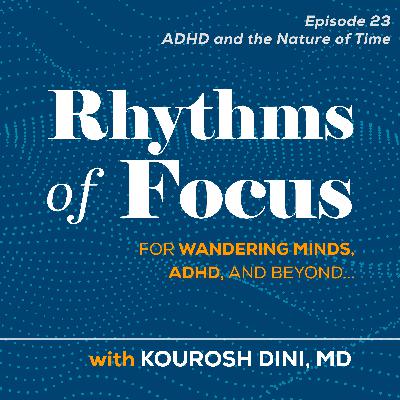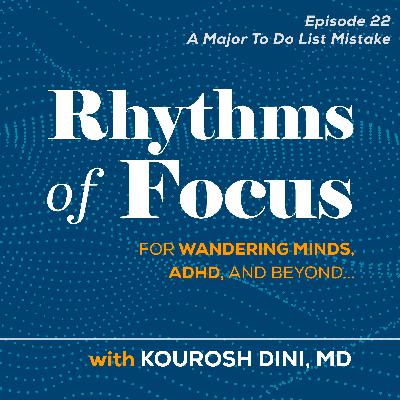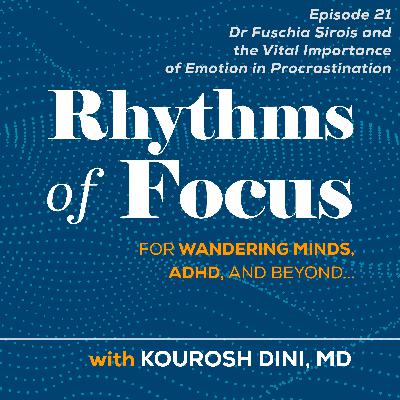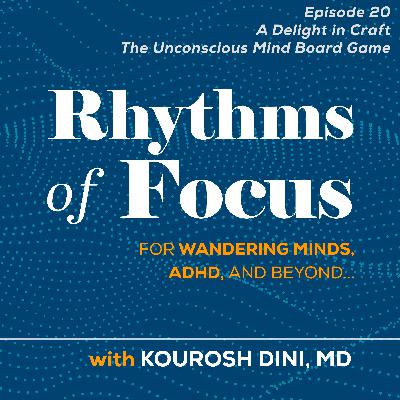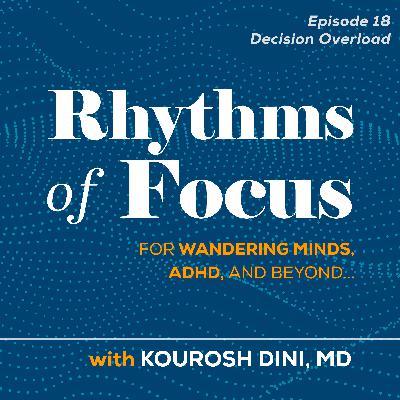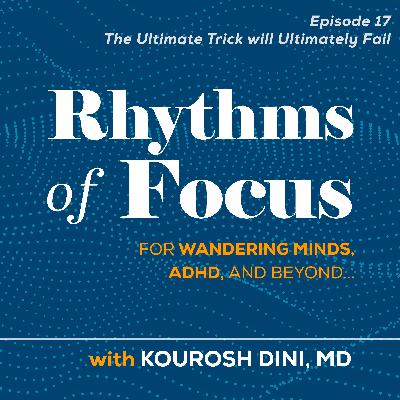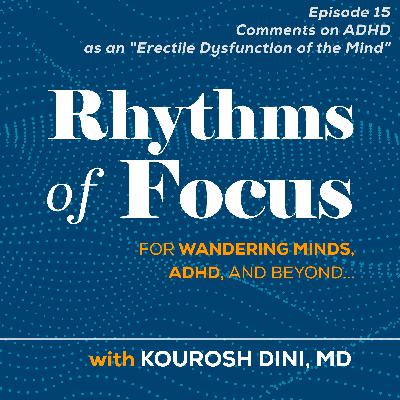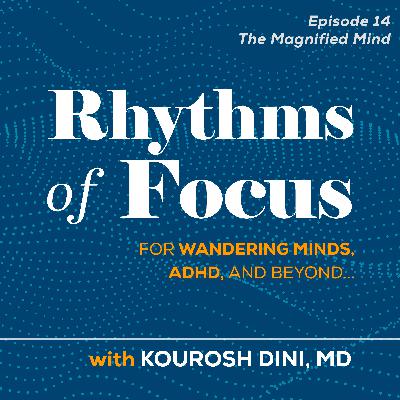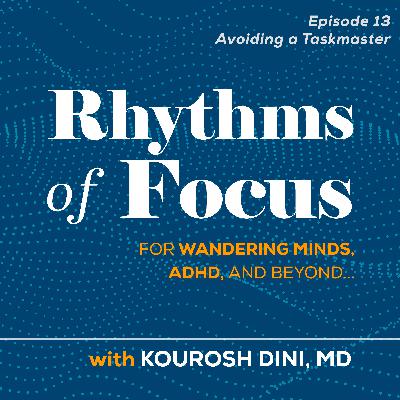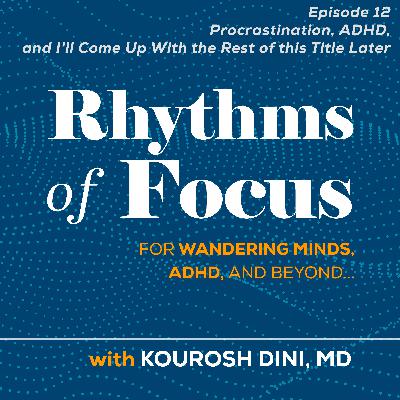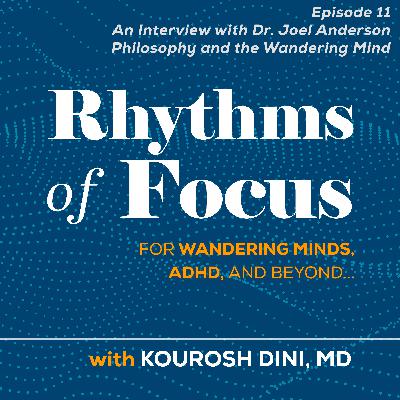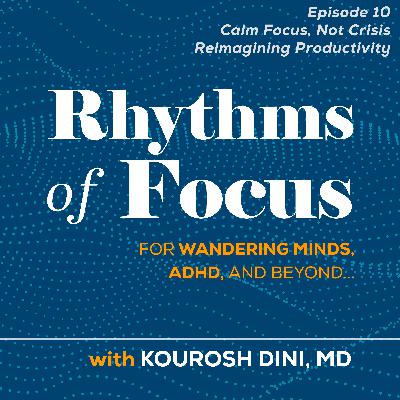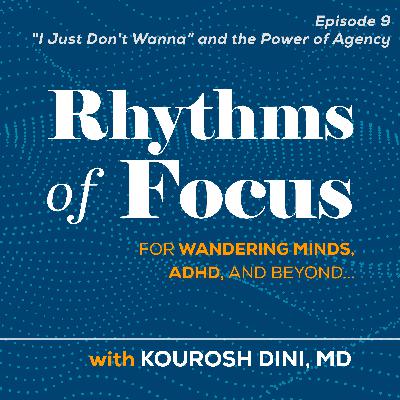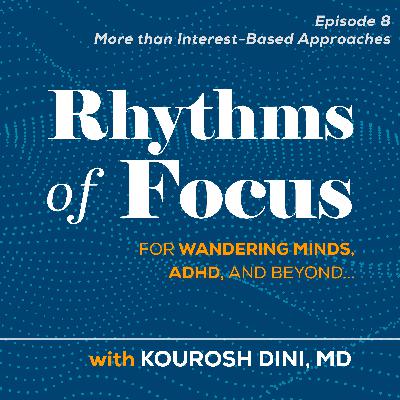Juggling Creation and Confusion
Description
Ever feel like your creativity is both a gift and a juggler’s challenge—especially when you’re navigating the winding paths of ADHD or a wandering mind? In this episode of Rhythms of Focus, we’ll explore how confusion is vital in creativity and how, by embracing it, you can uncover mastery, meaningful work, and joy along your journey.
Discover:
- Why passion is more than a flash of excitement—it’s the steady, nurturing rhythm beneath mastery and meaningful work.
- The powerful role confusion plays in creative growth (and why learning to “hold” it can lead to breakthrough insights).
- How daily rhythms of engagement—not rigid productivity hacks—can transform decision overload into meaningful flow.
Takeaways:
- Learn strategies for befriending confusion, using it as a stepping stone rather than an obstacle.
- Practice the “daily visit” approach to creative work, supporting your mind’s natural curiosity and growth.
- Recognize moments when play turns into overload, and discover gentle ways to restore clarity and self-compassion.
Plus, this episode features an original piano composition—“Flagrant Air Biscuit”—capping off our exploration with musical playfulness.
Subscribe to Rhythms of Focus and visit rhythmsoffocus.com for more episodes, resources, and inspiration fostering mindful, agency-driven creativity.
Keywords
#ADHD #WanderingMinds #Creativity #Confusion #MindfulProductivity #PlayfulFocus #MasteryJourney #MeaningfulWork #DailyRhythms #PianoComposition
Transcript
What about Passion?
Challenge, interests, novelty, urgency, passion. These are often considered five grounding ideas for a wandering mind as Dr. Dodson once mentioned.
But I find that passion is not often talked about. It's about mastery, meaningful work, craft skill, and exploration over time, when we feel that we are developing mastery and meaningful work in our lives, there's a sense of regular engagement, motion, this organizing foundation to our days. It helps bring the inner critic to a quieter place. The seas seem more settled.
On the other side of it too, what we create. I think there's a phrase for it, which is "good work". So how do we foster good work?
On Writing a Good Book
A listener recently wrote to me about my writing process. He read my book, Taking Smart Notes with DEVONthink. He thought it was a good book. Several people have told me so. If I may be so bold, I think it's a good book, too.
So the question then is how do you write a good book? It's really the same question that goes into doing anything you try to do well.
My answer, which I gave to this listener and which I liked enough to save for this podcast, was that I dragged notes from DEVONthink, this file management and note management software into Scrivener, this software for writing, and then cut up those notes, rearrange them, look for commonalities between pieces, see if some structure starts to arise, and then realize it doesn't work or it's boring, or I've said the same thing multiple times.
I don't know where to cut. The order of parts is plain wrong, and so sometimes I scream, sometimes even internally. Then I go to sleep. Then the next morning, something new comes to mind. I write that material, realize I now have more to cut and edit, scream again, rearrange the stuff, try it all again, sometimes in that order.
At some point my internal compass says, dude, that's enough. So I slap a price tag on it, put it up for sale, and have a panic attack, and then you have a book. Sometimes it's a good book.
The short answer, however, is that I've learned how to handle confusion. I've learned how to hold confusion, and that is a vital skill for a wandering mind, particularly when you want to find mastery and meaningful work. Good work.
Creativity, Play, and the Wandering Mind
Wandering minds are often wonderful at creating things. They're the master Lego builders. They take apart the instructions and say, oh, let me see what I can build myself. They often have this incisive wit. They see things, others don't. They can have this powerful curiosity ready to mine new discoveries.
They are creative.
And what does creativity, other than this discovery of what you're making and the act of making it? We play and care nourishing this creative tendril into mastery and meaningful work.
Play is this essence of creativity, a connection and exploration between self and world. Cultivated well, it's this reactive, creative, laughing, sometimes timid, sometimes bold, appearing most often when conditions are favorable. But when it arrives, it fights for its existence and brings this needed vitality to genuinely engage our surroundings.
But play doesn't happen on its own. Often we struggle through confusion.
An Overabundance of Creativity
Wandering minds often have this overabundance of some emotion distorting the lens of consciousness, as I mentioned in episode 14. This distortion often creates the problems we have, and sometimes that emotion can be play itself.
Play can often appear when we feel safe from demands and from the like. Risks are somehow okay if not inspiring, meeting us in this window of challenge.
When we get interrupted though, by demands, by questions, by lack of clarity, we lose some of that sense of safety. We might not be able to trust our environment. We may not be able to trust ourselves to support the seeds of play.
We grow bored, overwhelmed, frustrated, anxious, all the things that threaten that playful self. The trouble that a wandering mind can encounter is that the play itself can interrupt us.
I am engaged in flow here, but what about that? What if I organize this better? What if I found this better tool, this app? What about this thought? This reminds me of that. Where do I start?
Juggle enough of these and exhaustion seeps in. Soon enough, we collapse on the couch where decisions can be made for us by one screen or another. The play itself created a decision overload, leaving us in confusion, unclear of the next direction.
Sitting in silent suffering, that pain of potential unrealized, we can't simply say, "well, I guess I won't be confused, how if I'm just not?" Or we might say, "I'm, I'm just gonna go that way."
But then we leave behind this important part of ourselves and the sense of emptiness follows in the wake. In order to find that play and care, we need to engage with a fuller sense of self. We need to bring that part of us with us. We must hold onto the confusion because it is a part of us. And it may even be a part of us that's trying to say something important.
Listening to Confusion
Confusion's an odd duck. Sometimes it appears subtly. We might easily allow it to pass by in conversation or in reading.
Sometimes we don't even realize we've been confused. The mind simply goes poof, such as when we get lost in conversation or when we're reading the same passage over and over.
Confusion can also be brash, heavy handed, completely dumbfounding us, unable to move forward.
Whether it's subtle or brash, the intensity of that confusion may not reflect the depth of importance behind it.
What appears to be some small inconsistency, it's really this crack belying, this massive gorge underneath. I may have stumbled into something deep, larger than my current understanding even allows to fully acknowledge.
On the other hand, what appeared to be a complete mess. Might only be a trick of the light. I push this one tiny piece and everything falls into place.
What Even is Confusion?
What is confusion? Well, I think we need to start with working memory. Working memory is the contents of consciousness. It's not just some number of things we can remember. When we hold multiple things in mind, we can't help but weave some meaning between them. And in so doing, we create the singular object with several parts.
It's not just holding seven plus or minus two items together, as some might say, it's about some singular item or some small number of items that are rhythmically bouncing in and out of conscious awareness. And when two things don't connect a cloud of probability forms, things can connect this way, things can connect that way or not at all.
And these considerations themselves are not entirely conscious. In fact, I would posit mostly not conscious.
And that new probability cloud, that feeling of confusion is now one more object for your mind to juggle.
For a wandering mind, our focus tends to rest in the smaller constricted, though magnified place. The sensation, the emotions grow large. Further, they take up a lot of space. Psychic RAM, effort, or whatever unit of description you want to use.
Painful as confusion can be, sometimes stimulating feelings of shame, irritation, and the like. These build on that sense of confusion and the scatter can grow. It's no wonder we might have that feeling of wanting to run away, find somewhere, anywhere that has us feeling productive, engaged, and meaningful in some other direction other than, oh my goodness, this one right here, right now, because I can't take it.
We might hope that some cloud of confusion would just take care of itself. Maybe the author will explain away whatever problem I'm having, if I can only make it there. But they also might not. In fact, by ignoring or pushing that sensation away, might even be losing an important point of discovery, engagement, something that would mean something to ourselves.
When we can rest our mind in that confusion, much like any emotion, we start to develop associations, the meaning behind it, the cracks in the confusion. The places where we realize, "wait, I know why this didn't make sense. I kn

